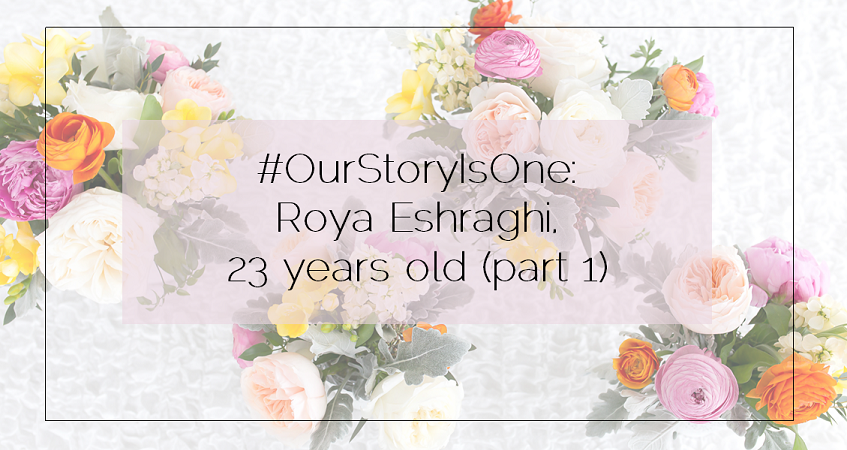There has always been, at least in the spaces that I have been in throughout my life, a focus on Mona Mahmoudnejad. And it was and still is shocking that a mere 17-year-old would be put to death by hanging for the reasons Mona was. But 23 isn’t that much more, the age Roya Eshraghi was when she was executed, hung along 9 other women—including her mother.
Sometimes I smile thinking of how Roya and her mother, demonstrating, as the driver of the bus described, high spirits, might have teased each other about doing this together. But it’s a heavy smile, all the more that I am a mother myself now. I would be proud of my child for standing up for justice, equality, freedom—but I hope it never, ever involves something like this.
The fourth of five children, Roya was born in Shiraz in 1960. She was lively, affectionate, and loved animals. The family moved around a bit, always within Iran. The family returned to Shiraz when Roya was accepted at Pahlavi University to study veterinary medicine. Three of her siblings lived abroad, and her parents were retired. Just like Mona, Roya taught Bahá’í children’s classes. Things were going very well for the family until the 1979 Islamic Revolution, after which her father’s pension was cut and Roya, in her third year, was expelled from university, because they were Bahá’í. This was and still is commonplace in Iran, by the way.
Needless to say, the Eshraghi children who were living abroad were getting very concerned about the safety of their parents and siblings, Roya and Rosita; they asked their family to leave Iran, but the four decided to stay in solidarity with the rest of the Bahá’ís in the country.
During the Iran-Iraq war, which started in September 1980, the Eshraghi’s home hosted Bahá’í families who had lost everything to war and were homeless. These families lived in the Eshraghi home and were taken care of by the Eshraghis until they could find a place of their own. These comings and goings attracted attention until, on 24 November 1982, the family home was searched by Revolutionary Guards. Roya and her parents, Ezzat-Janami Eshraghi and Enayatollah Eshraghi, were all arrested, detained and interrogated for two days at Sepah before being released on 27 November.
On 29 November 1982, the family home was raided and searched for three hours, during which Bahá’í books and various papers were confiscated. Roya and her parents were arrested for a second time. They were put in a car and taken back to Sepah, while the Revolutionary Guards insulted and abused them.
Roya was only 22 years old when she was arrested; since she was 23 when she was executed, this implies that she celebrated her last birthday in prison. From what I understand, the Bahá’í women who were imprisoned together at that time were, despite the circumstances, quite joyful; I like to think that Roya’s last birthday was her best one yet, celebrated beside strong women who, like her, were standing up to oppression and injustice.

